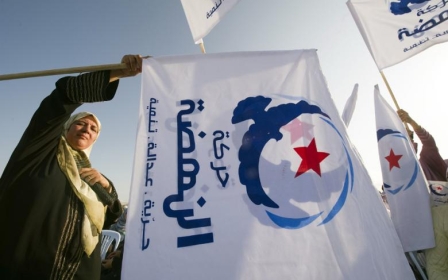Tunisia: Global rights groups slam president's 'power grab'

Around 20 global and Tunisian human rights groups have condemned a "power grab" by Tunisia's president and warned of a slide back towards authoritarianism.
In a joint statement, the groups "strongly denounce the decisions taken unilaterally by President Kais Saied, reaffirm their unwavering attachment to democratic principles and condemn the seizure of power and the lack of any form of safeguards".
Last week, Saied brushed aside much of the 2014 constitution, giving himself power to rule by decree two months after he sacked the prime minister, suspended parliament and assumed executive authority.
Signatories to the statement included Amnesty International's Tunisia section, Human Rights Watch, the International Commission of Jurists, and the Tunisian Network for Transitional Justice.
Saied's action is "implicitly abrogating the constitutional order in... a first step towards authoritarianism," the rights groups said.
Saied sacked the government of Hichem Mechichi and suspended parliament on 25 July, presenting himself as the ultimate interpreter of the constitution.
Mechichi's government was supported by Ennahda, the largest party in Tunisia's deeply fragmented legislature.
On Sunday, several thousand people gathered in Tunis under a heavy police presence to call on Saied to step down.
"The people want the fall of the coup," they chanted in the centre of Tunis along Habib Bourguiba Avenue, a focal point of the demonstrations that ended the long rule of president Zine El Abidine Ben Ali on 14 January 2011.
'Peaceful struggle'
Fractious coalitions and short-lived governments that followed the North African country's 2011 revolution have proved unable to resolve pressing social and economic crises.
Although Saied's July measures enjoyed some public support, civil society groups have been warning of a drift away from democracy.
The speaker of Tunisia's parliament Rached Ghannouchi on Thursday called for "peaceful struggle" against a return to "absolute one-man rule".
"The situation is worse now than it was before 25 July," he said an interview with AFP.
Before that "there were no arrests over blog posts, no thousands of Tunisians banned from leaving the country".
A day later the country's powerful UGTT trade union confederation warned of threats to the country's democracy.
In their statement, the rights groups recognised "the limits of the current political system" established by the 2014 constitution but said any reform must be done while respecting "the separation of powers and in full guarantee of fundamental freedoms and human rights".
Such change cannot be "dictated unilaterally by the presidential power," the groups said.
Saied will now rule and pass laws by decree, without the need for a vote in parliament, which remains suspended.
"The constitution is no longer the source of laws, and no recourse will be possible against the presidential decrees," the statement said.
Middle East Eye delivers independent and unrivalled coverage and analysis of the Middle East, North Africa and beyond. To learn more about republishing this content and the associated fees, please fill out this form. More about MEE can be found here.





